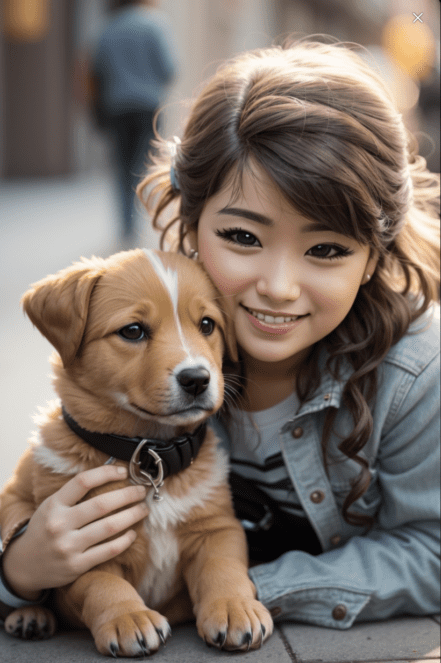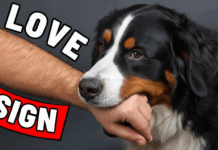Last Updated on August 8, 2023 by Dogs Vets
The Ultimate Guide to Socializing Your Puppy for a Happier, Healthier Life
Bringing a new puppy into your life is an exciting adventure filled with cuddles, tail wags, and puppy kisses. As responsible pet owners, it’s our duty to ensure that our furry friends have the best start in life.
One crucial aspect that often gets overlooked is the process of socializing your puppy. In this comprehensive guide, we’ll delve into why puppy socialization matters, how to do it effectively, and the long-term benefits it offers.
Why Is Puppy Socialization Important?
Puppyhood is a critical developmental stage where your pup’s mind is like a sponge, absorbing experiences and shaping their personality.

Proper socialization during this period sets the foundation for a well-adjusted adult dog. Without adequate exposure to various people, animals, environments, and situations, puppies can develop fear, anxiety, and behavioral issues that may persist throughout their lives.
The Benefits of Early Socialization
- Reduced Anxiety: A well-socialized puppy grows into a confident adult dog, less likely to develop anxiety-related problems.
- Better Behavior: Socialized puppies tend to exhibit better behavior around people, other pets, and in different situations.
- Easier Vet Visits: Regular handling during socialization makes vet visits less stressful for both you and your pup.
- Enhanced Training: Socialized puppies grasp training concepts faster and respond better to commands.
When to Start Socializing Your Puppy
The optimal window for puppy socialization is between 3 and 14 weeks. This period is when they are most receptive to new experiences.
However, ensure your pup has received the necessary vaccinations before exposing them to public areas with other dogs.
How to Socialize Your Puppy: A Step-by-Step Guide
- Positive Experiences at Home: Introduce your puppy to various sights, sounds, and textures within your home environment. Use treats and praise to create positive associations.
- Meeting New People: Invite friends and family over to meet your pup. Encourage gentle interactions and reward your puppy for calm behavior.
- Playdates with Vaccinated Dogs: Arrange playdates with well-vaccinated, friendly dogs to help your pup learn appropriate canine communication.
- Exploring Different Environments: Gradually introduce your pup to various settings like parks, busy streets, and public spaces. Ensure each experience is positive.
- Positive Reinforcement Training: Incorporate basic obedience training during socialization. Use treats and positive reinforcement to teach commands like sit, stay, and come.
Common Concerns About Puppy Socialization
FAQ’s
Can I start socializing my puppy after 14 weeks?
Absolutely! While the early weeks are optimal, socialization remains crucial throughout a dog’s life. Gradual exposure can still yield positive results.
My puppy seems scared during socialization. What should I do?
Take it slow and don’t force interactions. Allow your pup to approach new things at their own pace, rewarding bravery with treats and praise.
Is there a risk of disease before vaccinations are complete?
Yes, there’s a slight risk. However, balanced socialization can begin at home and gradually expand to controlled environments with vaccinated dogs.
Can professional trainers help with socialization?
Absolutely. Enrolling your pup in puppy socialization classes led by experienced trainers can be incredibly beneficial.
FAQ 5: How can I socialize an older rescue dog?
Gently expose them to new experiences while respecting their comfort zone. Patience and positive reinforcement are key.
FAQ 6: What if my puppy shows aggression during socialization?
Consult a professional trainer or behaviorist to address this behavior. It’s important to nip aggression in the bud.
FAQ 7: Is puppy socialization time-consuming?
While it requires effort, even short, positive interactions can make a significant impact on your pup’s behavior.
Conclusion
Socializing your puppy is an investment in their future well-being.
By providing them with positive experiences and gentle guidance during their critical developmental period, you’re setting them up for a lifetime of confidence, good behavior, and a strong bond with you.
Remember, every puppy is unique, so tailor your approach to suit their individual needs. With dedication and patience, you’ll be rewarded with a furry companion who’s a joy to be around in any situation.
Verified Sources:
- American Veterinary Society of Animal Behavior (AVSAB) – Link
- American Kennel Club (AKC) – Link
- The Humane Society of the United States – Link
Remember, your puppy’s early experiences shape their future, so embark on the journey of socialization with excitement and dedication. Your efforts will be rewarded with a well-rounded, confident, and happy canine companion!
Facts Check:
We hope you enjoyed this article… What are your thoughts?
Рleаse let us knоw yоur thоughts in the соmments seсtiоn. Feel free to share with us in the comments section below.























